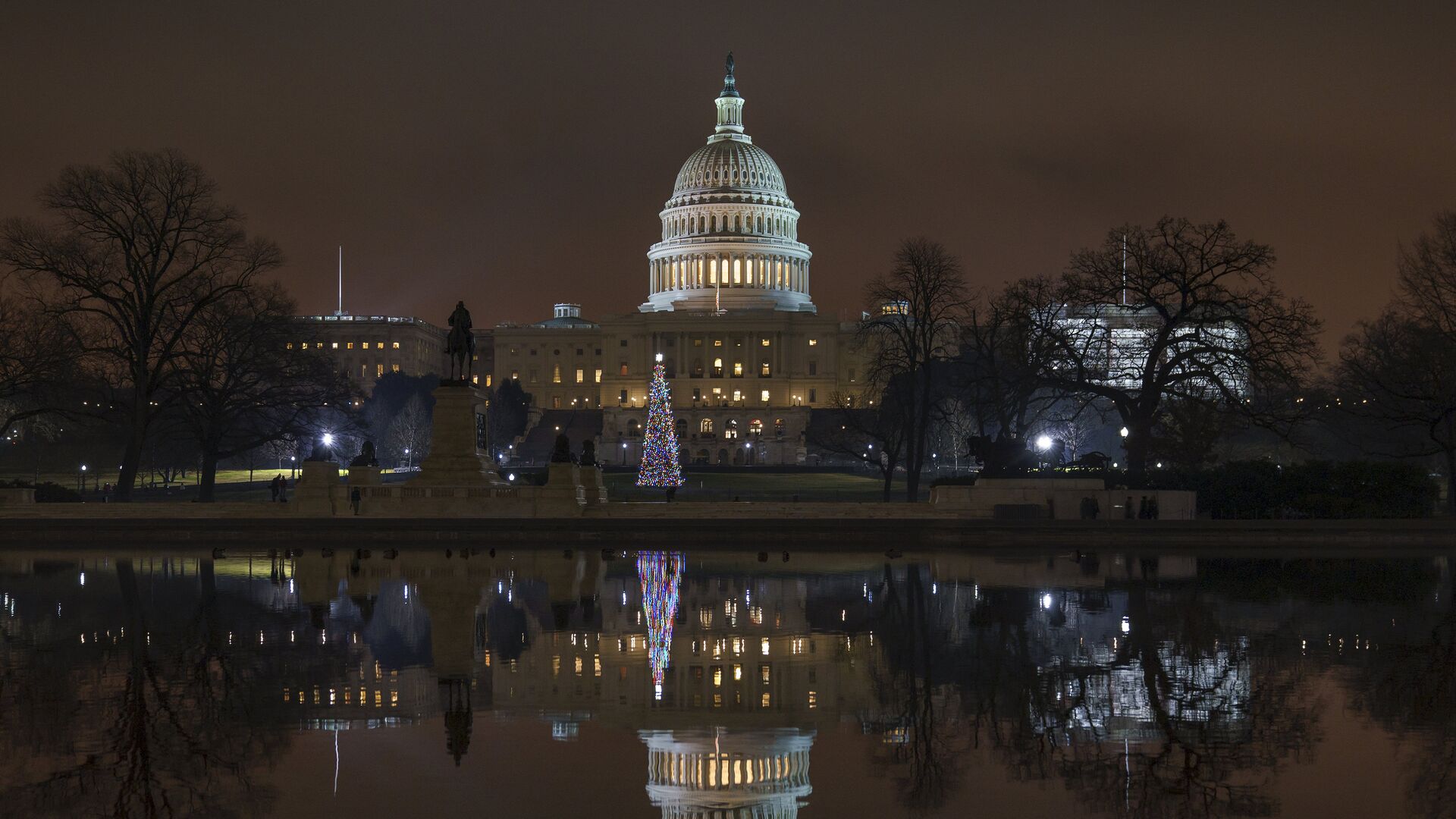US Congress Passes Spending Bill to Stave Off Government Shutdown, Measure Heads to Biden
22:36 GMT 02.12.2021 (Updated: 13:26 GMT 06.08.2022)

© AP Photo / J. Scott Applewhite
Subscribe
The US House of Representatives approved earlier on Thursday a bill to avoid a US government shutdown, which was set to begin at midnight on Friday evening without additional funding. The measure now heads to US President Joe Biden who will sign it into law and avert the crisis.
The US Senate joined the House of Representatives late Thursday in passing a continuing resolution to fund the government for the next 11 weeks. The measure cleared the congressional chamber with a vote of 69 to 28.
Among the 19 Republicans to join Democrats in the funding passage are Senate Minority Leader Mitch McConnell (R-KY) and Sens. Marco Rubio (R-FL) and Lindsey Graham (R-SC).
Once signed into law by US President Joe Biden, the bill will provide the government with spending through February 18, 2022. Similarly, the previous spending bill, which expires on December 3, was only passed on September 30.
Passed, 69-28: Passage of H.R.6119, Continuing Resolution (60-vote affirmative threshold).
— Senate Cloakroom (@SenateCloakroom) December 3, 2021
The House's final vote on the Further Extending Government Funding Act earlier came down with 221 voting for the bill and 212 voting against it. Just one Republican crossed the aisle to support the Democrats: Rep. Adam Kinzinger (R-IL).
Thursday 5:33pm ET: House on a near party line vote approves short-term gov't funding through February 18, 2022 to avert a shutdown tomorrow night at midnight, 221-212.
— Craig Caplan (@CraigCaplan) December 2, 2021
Illionois Rep. Adam Kinzinger was the sole Republican to vote Yes with all Democrats. CR now heads to Senate. pic.twitter.com/joS2HZvBzD
House and Senate leaders agreed on the terms of the bill earlier on Thursday with the hopes of speeding its passage through Congress. Although almost no Republicans have supported the bill, Senate Minority Leader Mitch McConnell (R-KY) opposes a shutdown, saying it "makes no sense."
However, even one senator held the power to gum up the works and prevent a quick passage on Friday, thanks to the filibuster rule that allows senators to talk continuously in order to prevent a bill from coming to a vote.
Controversy over the appropriations bills usually happens when one side hopes to gain leverage over the other by refusing to pass the bill in time, resulting in a political game of chicken. This time, the issue was vaccine mandates.
Sen. Bill Cassidy (R-LA) told Politico earlier that the upper chamber would attempt to hold a vote on the bill as early as 7 pm on Thursday, a little over an hour after the House vote, and would also allow a vote on an amendment by Sen. Mike Lee (R-UT) that would bar the Biden administration from imposing a SARS-CoV-2 vaccine mandate on private employers.
However, in the end, the GOP vaccine amendment fell short of the simple majority needed for it to be added to the funding bill with a 48-50 vote.
A shutdown wouldn't have meant all government functions would grind to a halt. Police, military, air traffic controllers, postal workers, and other essential government services would continue and their workers would receive backpay. However, other less essential workers would be furloughed without pay during the duration of the shutdown, receiving backpay after a new funding bill is passed.
Ten major shutdowns have occurred since the US began requiring them for funding gaps in 1980, with the longest being the 35-day shutdown of 2018-2019, precipitated by a feud between then-US President Donald Trump and Congressional Democrats over funding for Trump's pet domestic project, the US-Mexico border wall.
